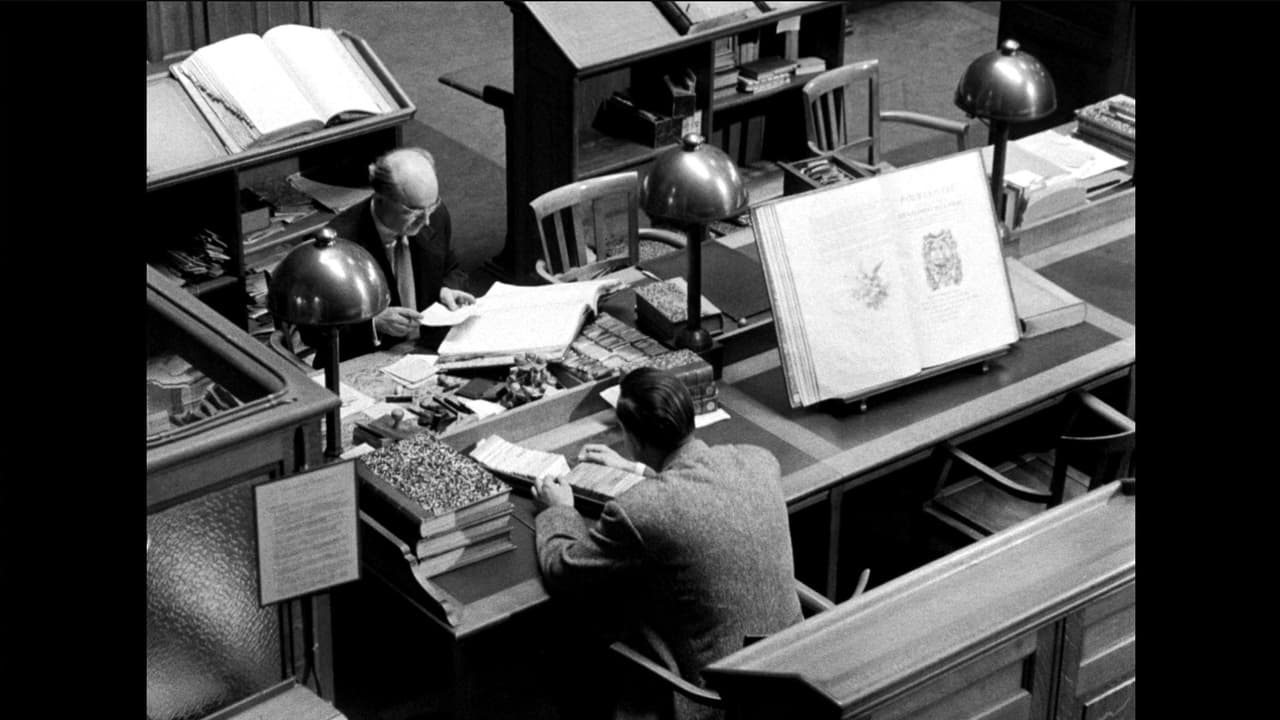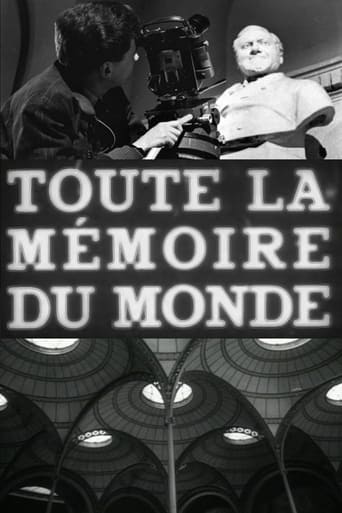

Really Surprised!
... View MoreMemorable, crazy movie
... View MoreDreadfully Boring
... View MoreThe movie really just wants to entertain people.
... View More"Toute la mémoire du monde" or "All the Memory of the World" is a French black-and-white film by Alain Resnais from 60 years ago. It's interesting that two of the three people involved with this documentary became over 90 years old and the third also made it past 80. Admittedly, most of the books in this documentary are much older still. And that's basically what it is: a 20-minute documentary about a gigantic library in the French capital. I have to say it was never really interesting and even to people who often go to libraries I'd rather recommend to read a good book than to watch this one here. It's really only worth a watch for nostalgic reasons, maybe especially for French or even better Parisian citizens. The rest can really do without it. Not recommended.
... View MoreToute la mémoire du monde is a short documentary that Alain Resnais made before he became one of the giants of the New Wave. In some ways it does prefigure some of the ideas he would explore in his future feature films. For instance, while this may be a documentary about the Bibliotheque Nationale in Paris, it is also interested in exploring the mazes of the mind; in this respect it has much in common with Resnais most famous film Last Year at Marienbad. We look at this famous library and liken it to a physical representation of a mind. We see how knowledge is organised within it, with the purpose of storing it away for some future reference not yet known. The library is depicted as a growing entity; almost alive. As more books are published it burrows deeper into the ground to accommodate them and to ensure that the memories of our culture are never lost.Aside from this, it works as an interesting look at a famous institution. When you watch it now, it's difficult not to think that the smallest of computers could now store the entire contents of the library back then. Advances in technology have changed things irrevocably. But I like to think that this old library is still growing and evolving to accommodate physical media and always will do. Some things are worth preserving and to never be forgotten.
... View MoreThis one prefaces Resnais subsequent work, memory and what forms appear in it. The consistently brilliant touch of this is that he visualizes memory by means of cinema, a space which the camera can literally explore.Here he stumbles upon a fitting metaphor for the mind, the National Library of France. We see how knowledge is routinely amassed and categorized there, how people daily wade through so much information which then is merely stored away for future reference. What looks frightening to me is not that what is infinite and beyond words is believed that it can fit into shelves, but the megalomania behind the enterprise, the belief that among these shelves the secrets of the universe may be unlocked one day.But what is stored away there is merely thought or the objects of it. Our civilization destroyed by some imaginary catastrophe, how will an alien visiting the ruins of this library know how we experienced through our eyes a gust of wind or a sunset?To accommodate with the ever increasing influx of information, we're shown how the library burrows further underground, digging deeper inside of us. Resnais explores this cavernous place with a camera that recalls the future endeavors of Sacha Vierny, and although a bit obvious in what is intended by it, as a prologue of what was then to come, it's a great watch.
... View MoreAlain Resnais is a damn wizard! You have to see Toute la mémoire du monde, than Nuits et Brouillards, than Hiroshima mon amour to understand the power of the message being sent there.With Toute la mémoire du monde, Resnais is setting the basis of his cinematographic project about places of memory. Within 20 minutes, Resnais is surgically, methodically analyzing the national library of France. With an hyperactive camera, he's sneaking, he's smelling, he's feeling this huge building. Very fast paced and organized movie that sets up more than ever, the cut between him and the other directors of the french new wave. In my humble cinephile opinion, Resnais is in a league of his own.
... View More